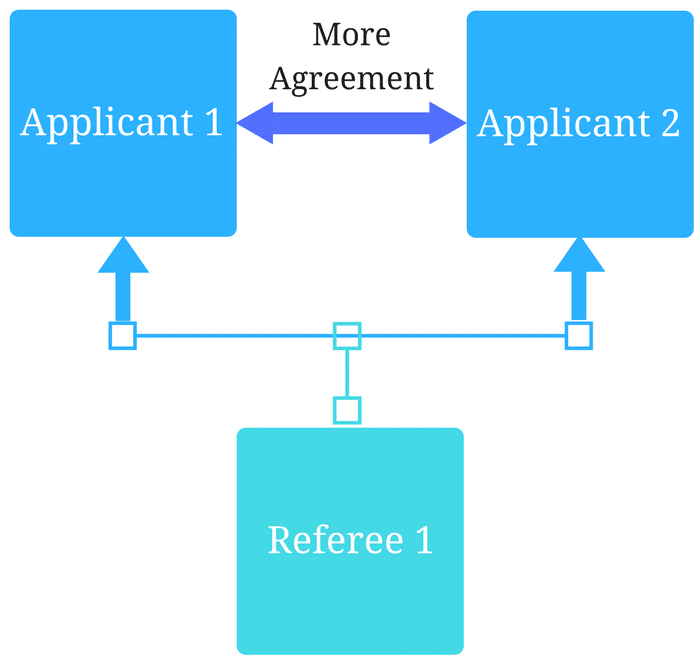How to Make the Switch to a Pass/Fail Curriculum

December 21, 2023
In today’s dynamic world of medical education, a significant shift is underway, one that’s causing ripples of discussion and debate among educators and students alike. The topic at hand? The transition to a pass/fail curriculum. Join us as we delve deep into this trend, examining its nuances, advantages, and potential pitfalls.
Yesterday’s Holistic Success Show episode covered this intriguing topic with insights from Sylvia Mioduszewska, Senior Product Manager for One45 at Acuity Insights. The conversation was led by Dr. Kelly Dore, co-founder of Acuity Insights, co-creator of Casper, and VP, of Science and Innovation at Acuity Insights.
Read on to learn about the insights shared on the Holistic Success Show’s latest episode.
Why are we moving towards a pass/fail curriculum? Where did this trend start?
The transition to pass/fail curricula in medical education has been a growing trend, with roots dating back to practices in countries like Australia and early adoption by institutions like Harvard and Stanford. However, in recent years, this movement has gained significant momentum in North America. The driving force behind this shift is the desire to reduce the stress and burnout experienced by medical students.
The trend has been further accelerated by the COVID-19 pandemic, which disrupted clinical experiences. During this time, many institutions turned to pass/fail grading for clerkships. This shift reflects a growing awareness of the importance of student well-being and the need for adaptable educational models in the face of unforeseen challenges.
What are some of the advantages to moving to a pass/fail curriculum?
The adoption of pass/fail curricula in medical education heralds a significant shift, with many advantages. One of the main advantages is the remarkable reduction of stress and anxiety among students. The Pass/Fail system liberates students from the relentless pursuit of top grades, allowing them to channel their energies towards meaningful learning.
This transition also fosters a culture of collaboration among students. With the competitive grading system set aside, a more cooperative and supportive learning environment emerges. Students are inclined to share resources and offer assistance to their peers, enhancing the overall educational experience.
Pass/fail curricula harmonize seamlessly with competency-based education, where the emphasis lies in mastering skills rather than fixating on exam scores.
What are some of the disadvantages that a program might see when moving to a pass/fail curriculum?
The adoption of pass/fail curricula in medical education presents a mixed bag of challenges and opportunities. The lack of granular grading makes it difficult to differentiate between students, particularly crucial in residency applications. The loss of data points, like USMLE Step 1 scores, raises further concerns about selecting the right candidates for programs.
Pass/fail may promote local complacency, as students may not feel compelled to excel. However, there’s optimism in the inherent self-motivation of medical learners. Additionally, transitioning to pass/fail entails cultural and curriculum overhauls, demanding substantial effort and assessment method revisions. It’s a complex journey with both pros and cons to navigate.
How does a program determine whether a pass/fail curriculum will actually work for them?
When considering the transition to pass/fail or any significant curriculum change in medical education, it’s essential to approach it strategically. Pilot programs offer a valuable testing ground, allowing schools to experiment and identify potential pitfalls before full implementation. However, running pilot programs isn’t a small feat; it requires thorough oversight, committee involvement, and data analysis.
Collecting data on student performance and stress levels, gathering feedback, and examining relevant metrics are crucial steps. Stakeholder input is invaluable, involving faculty, students, and administrators in decision-making to ensure a holistic perspective.
Moreover, external consultation can be beneficial, especially for institutions lacking in-house curriculum expertise. Consulting with other institutions or professional bodies can help navigate the complexities of curriculum changes effectively. These comprehensive steps are key to making informed decisions and successfully adapting to new educational paradigms.
What is the most important thing for a program to get right if they’re moving to a pass/fail curriculum?
In the transition to pass/fail curricula in medical education, several critical considerations come to the forefront:
- Addressing cultural challenges and stakeholder alignment: A successful transition to pass/fail curricula necessitates addressing cultural challenges upfront, this includes ensuring stakeholder alignment – the linchpin of success.
- Defining clear pass criteria and faculty training: It’s critical that you establish unequivocal pass criteria and effectively and formally communicate the criteria to faculty and students. In addition, faculty training and development, especially for clinician instructors, are essential to adapt teaching and assessment methods.
- Maintaining a robust assessment framework: Schools must sustain a robust assessment framework with ample data points to identify struggling students early. Continuous curriculum evolution, guided by data analysis, is key for a successful transition.
To listen to the full episode on the opportunity and challenges in the pass/fail curriculum trend in medical education, visit our YouTube channel.
Looking for more blogs like this? Check out:
Related Articles

How interviews could be misleading your admissions...
Most schools consider the interview an important portion of their admissions process, hence a considerable…
Reference letters in academic admissions: useful o...
Because of the lack of innovation, there are often few opportunities to examine current legacy…
